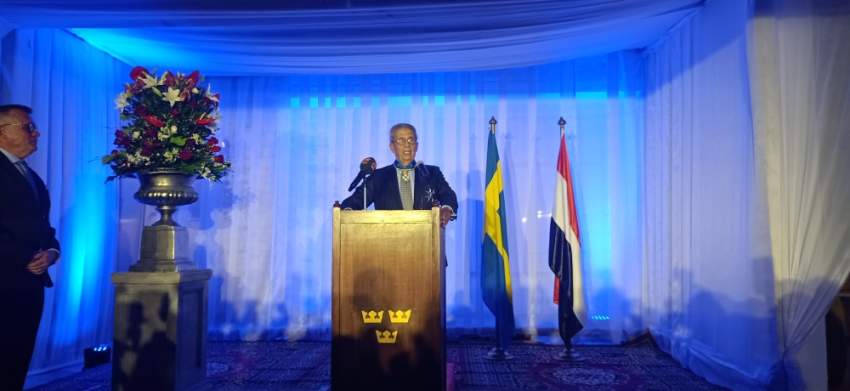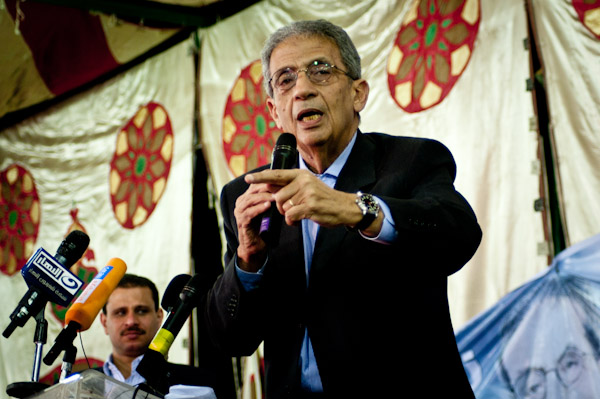Amr Moussa, the secretary general of the Arab League and presidential candidate, expressed reservations about the Egyptian military's management of the post-revolution transition period.
In statements to London Middle East newspaper, Moussa said that he had “question marks and exclamation points” concerning the management of the transitional period, scheduled to last six months until parliamentary and presidential elections can be held.
Along with Moussa, reformist Mohamed ElBaradei, head of the National Association for Change, criticized the Supreme Council of Armed Forces' arrangements for the transition. ElBaradei called for a new constitution to be drafted before elections, although the council recently released an interim constitution.
The council issued on Wednesday the Constitutional Declaration, which includes 62 articles to regulate the state affairs and political life during the transitional phase and takes the place of the suspended 1971 Constitution.
A military spokesman announced Wednesday that parliamentary elections would be held in September, and presidential elections will be held within two months of parliamentary elections.
Moussa said that the anxiety of some youth revolutionaries is normal and legitimate. “We are supposed to remain concerned because the situation is not settled yet; therefore anxiety is a normal feeling during this phase”.
Among the constitutional amendments recently approved in a nationwide referendum, presidents are now limited to two four-year terms. Moussa said the limitations would help prevent attempts to circumvent the changes and demands of the revolution.
There is no room to talk about the return of a dictatorship or a totalitarian regime in Egypt, said Moussa. A new constitution and the next president must promote transparency and ensure that the country reaches the future it deserves.




